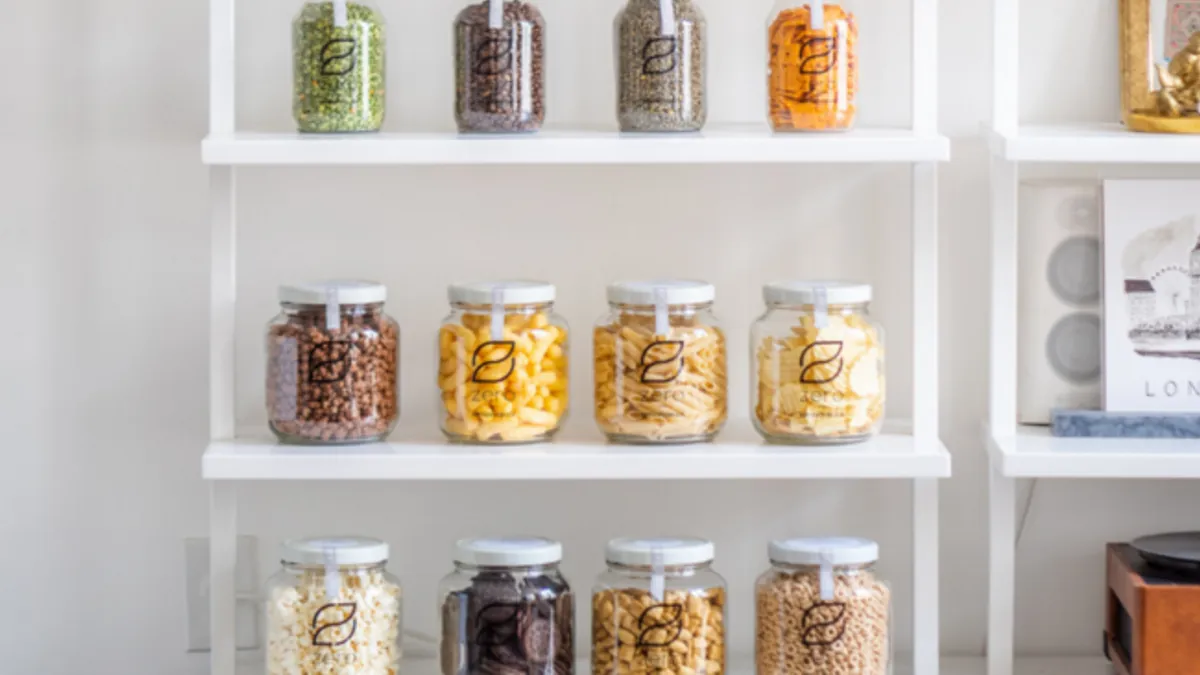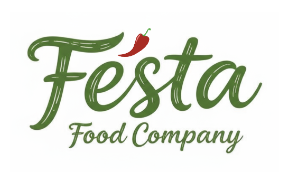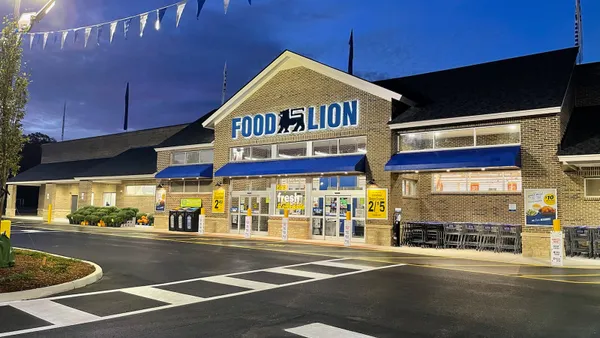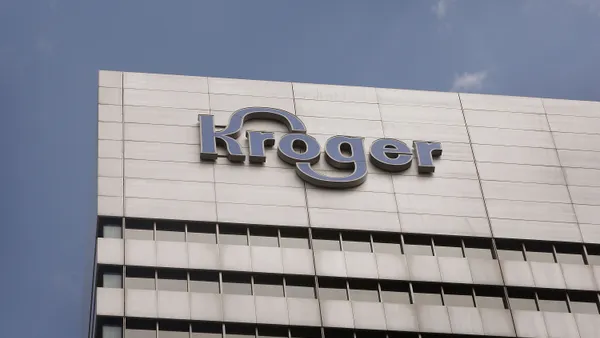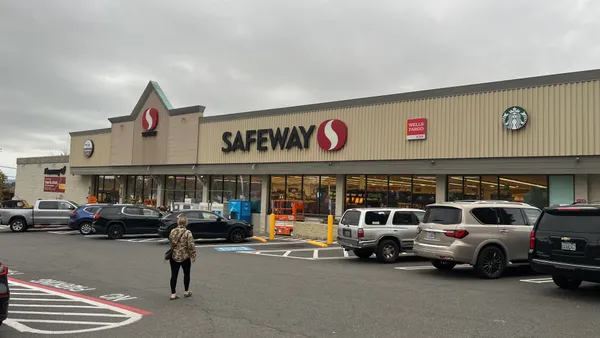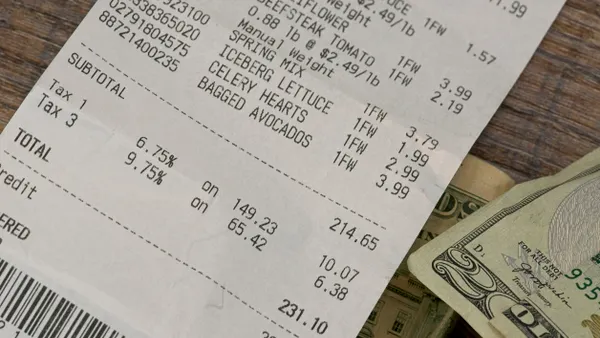Dive Brief:
- Zero Grocery, an online grocer that sells products in reusable containers, has raised $3 million in seed funding, bringing the company’s total funding to $4.7 million, according to a company blog post. Venture capital firm 1984 was the largest funder, Zero’s CEO and Founder Zuleyka Strasner said in the post.
- The e-grocer delivers plastic-free food packed in glass jars, boxes and other containers. A membership costs $25 a month and includes free delivery, and non-members can get groceries delivered for $7.99 per order.
- Based in Berkeley, California, Zero Grocery is the latest example of a retailer that's cutting down on its use of plastic. The company pursued its latest rounds of funding amid the COVID-19 pandemic as demand soared, and the startup team scrambled to keep up with the growth in its customer base.
Dive Insight:
Founded in 2019, Zero Grocery is the first online zero-waste grocer in the U.S., according to Strasner's post. It sources products in wholesale sizes to reduce waste and keep costs down.
Like many other e-grocers, Zero Grocery has grown exponentially since the coronavirus hit. Revenue has increased by 20 times since February, and the company also managed to avoid the out-of-stock issues that hit many other retailers during panic buying periods.
By the end of March, Zero Grocery tripled its revenue and member count, and also secured another $700,000 in funding, the post said. The money raised over the last six months was used to boost fulfillment capacity, improve technology and expand the company’s employee count.
With expectations that online grocery will continue to thrive, Zero Grocery is in a strong position to apply its latest funding for additional expansion. It joins a small but growing group of zero-waste stores like Zero Market in Aurora, Colorado, and Fillgood in Berkeley, California.
Large retailers are also making big plans to minimize packaging and food waste. On Monday, Walmart announced a partnership with Apeel to sell plastic-free cucumbers. Kroger has pledged to make its private label packaging 100% recyclable, compostable or reusable by 2030, and Ahold Delhaize is working toward zero plastic waste in its private label products by 2025.
Loop, a packaging platform that offers products from major CPG companies in reusable containers, has seen consumer interest grow during the pandemic. French grocer Carrefour will begin stocking Loop products on its shelves in October, and Kroger and Walgreens will do the same next year.


